FIVE-STAR TEAM WARRANTY &
SAME-DAY SERVICE
The 5 Best Ways to Unclog Your Kitchen Sink, According to Plumbers
A clogged kitchen sink can bring your daily routine to a halt. Fortunately, there are several methods to tackle the problem without calling a professional. In this article, we’ll cover how to unclog a sink and what are the five effective ways to unclog them, according to plumbers.
How Do Kitchen Sink Clogs Happen?
Kitchen sink clogs usually occur due to the buildup of food particles, grease, soap scum, and other debris in the drainpipes. Over time, these materials accumulate, reducing the flow of water and leading to complete blockages. Some of the most common causes include:
- Grease and fat
- Food waste
- Soap scum
- Foreign objects
How To Unclog Kitchen Sink
Now that you understand about kitchen sink clogged, let’s dive into five effective methods to unclog them.
Method #1: Use a Plunger
A plunger is one of the simplest and most effective tools for clogged sink drain in your kitchen. Here’s how to use it:
- If your sink has an overflow hole or you’re dealing with a double sink, cover the other drain or hole with a wet cloth. This will help build pressure when plunging.
- Make sure the plunger’s rubber cup is completely submerged in water to create an airtight seal. The water helps generate the force needed to push the clog through.
- Pump the plunger up and down for about 20-30 seconds, maintaining a strong seal with the drain. Then, lift the plunger to see if the water starts to drain. Repeat as necessary until the clog is cleared.
If successful, the suction created by the plunger will dislodge the clog and allow the water to flow freely again.
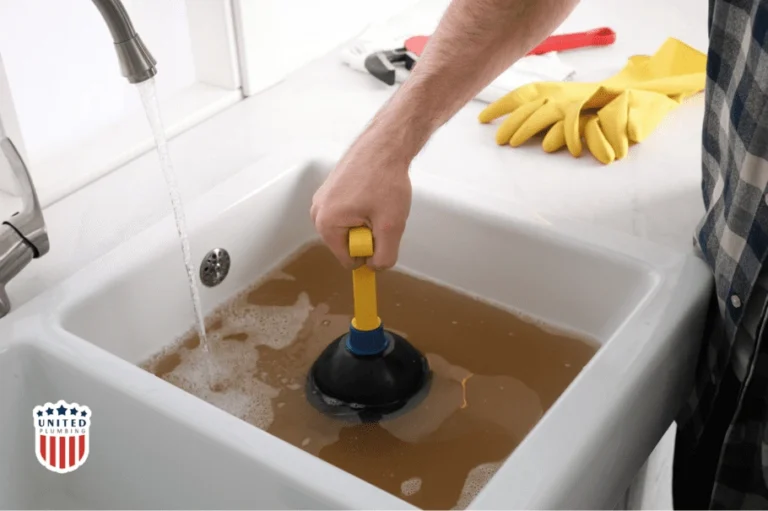
Method #2: Use Baking Soda and Vinegar
Baking soda and vinegar create a natural chemical reaction that can unclog sink. Here’s how to apply this method:
- Clear the sink: Clear clogged drain. Remove as much standing water as possible.
- Pour baking soda: Pour about one cup of baking soda directly into the drain.
- Add vinegar: Slowly pour one cup of vinegar down the drain. The mixture will fizz as it reacts.
- Wait: Let the mixture sit for 15-20 minutes to allow it to work on the clog.
- Flush with hot water: After waiting, flush the drain with boiling water to clear any remaining debris.
This method works best for organic matter, grease, and soap scum.
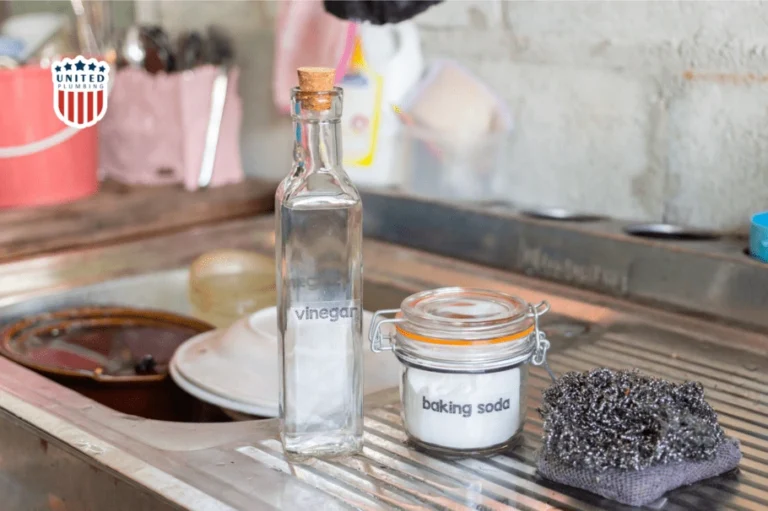
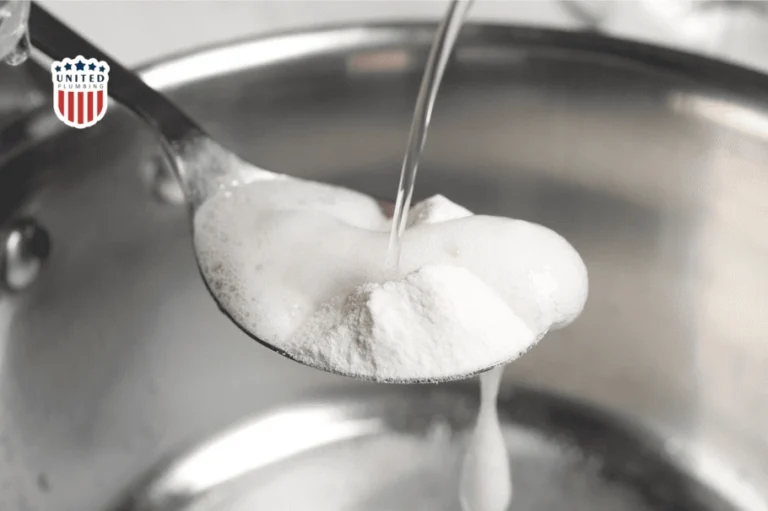
Method #3: Use a Drain Snake
For more stubborn clogs, a drain snake can reach deeper into the pipe. Here’s how to use it:
- Insert the snake: Feed the snake or auger into the drain until you feel resistance.
- Rotate and push: Twist the snake while gently pushing it further into the pipe to break up the clog.
- Remove the snake: Pull the snake out, and it should bring debris with it.
- Test the drain: Run water to see if the clog is cleared.
A drain snake is a powerful tool for clogs located deep in the pipes or caused by tough materials like food or hair.
Method #4: Use a Chemical Drain Cleaner
Chemical drain cleaners can be effective for severe clogs but should be used with caution due to their harsh ingredients. Follow these steps:
- Read the label: Choose a cleaner designed for kitchen sinks and follow the manufacturer’s instructions.
- Pour the cleaner: Carefully pour the recommended amount of chemical cleaner into the drain.
- Wait: Let the cleaner sit for the suggested time to dissolve the clog.
- Rinse with water: After the waiting period, flush the drain with cold water to remove the cleaner and any debris.
Be mindful that chemical cleaners can be harmful to your pipes over time, so only use them when necessary. Here you have some links where you can order it:
https://www.lowes.com/pl/drain-septic-cleaners/drain-cleaners/4294598963
https://www.amazon.com/drain-cleaner/s?k=drain+cleaner
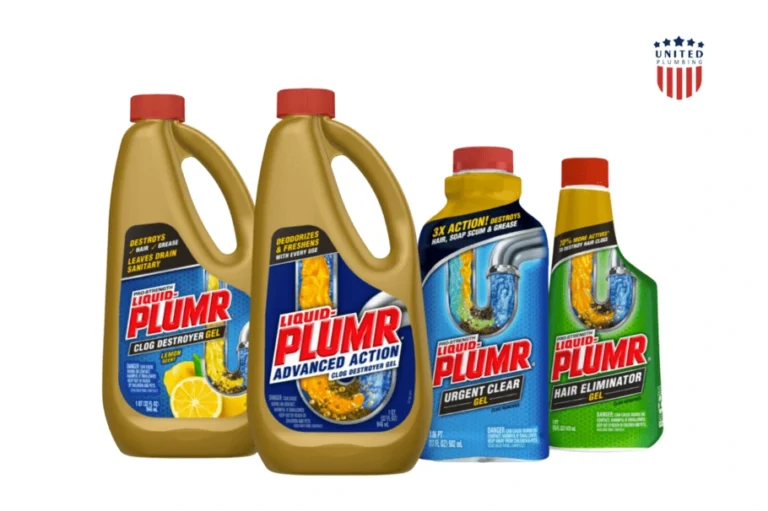
Method #5: Use Hot Water
Sometimes, a simple flush of hot water is enough to help with clogged kitchen sink, especially those caused by grease.
Warning* Be extremely careful when using boiling water to unclog your sink, as it can easily splash back and cause severe burns. Always pour the water slowly and from a safe distance to avoid scalding yourself. Consider wearing protective gloves and long sleeves to minimize the risk of injury.
- Boil water: Heat a large pot of water until it reaches a rolling boil.
- Pour carefully: Slowly pour the hot water down the drain in two to three stages, allowing it to work through any grease or soap buildup.
- Repeat if necessary: You may need to repeat this process several times for it to fully work.
Hot water helps dissolve grease and softens debris that may be clogging the pipes, making it easier to flush out.
Conclusion
Dealing with a clogged kitchen sink doesn’t have to be overwhelming. With these five plumber-approved methods, you know to unclog a sink. From plungers to natural remedies like baking soda and vinegar, and even drain snakes for tougher blockages, there’s a solution for every situation. Just remember to avoid putting grease, large food particles, and foreign objects down the drain to prevent future clogs from happening! If these methods don’t resolve the issue, it’s best to contact a professional plumber who has the specialized tools and expertise to handle more complex clogs. Attempting to fix a persistent blockage without the right equipment can sometimes cause further damage to your pipes.
Post views: 1254
FAQs: The 5 Best Ways to Unclog Your Kitchen Sink, According to Plumbers
What is the most effective way to unclog a kitchen sink?
The most effective method depends on the type and severity of the clog. For some clogs, using a plunger or a mixture of baking soda and vinegar can work well. For tougher clogs, a drain snake or auger might be needed.
How can I prevent my kitchen sink from clogging?
Avoid pouring grease, oil, and large food particles down the drain. Using a drain strainer can help catch debris, and regularly flushing the sink with hot water or baking soda and vinegar can help prevent buildup.
When should I call a plumber for a clogged kitchen sink?
If none of the DIY methods work, or if you notice persistent clogs, slow drainage, or water backing up, it’s time to call a plumber. Severe clogs or recurring issues may indicate a deeper problem in your plumbing system.
Can I use a plunger if I have a garbage disposal?
Yes, you can use a plunger on a sink with a garbage disposal, but make sure the disposal is turned off. If the clog is in the disposal itself, try resetting it or manually turning the blades before plunging.
How often should I clean my kitchen sink drain?
Regularly flushing your sink with hot water or a baking soda and vinegar solution can help prevent clogs. Doing this once a month can reduce the buildup of grease, soap, and food particles in your pipes.
Will using a drain snake damage my pipes?
A drain snake is generally safe for most pipes, but you should be cautious when using it. If used too aggressively or incorrectly, it can potentially damage pipes, especially older ones. Always follow the manufacturer’s instructions.
Can I use boiling water on all types of pipes?
Boiling water can help clear clogs in metal pipes, but it’s not recommended for PVC pipes as extreme heat can soften or damage them. If you’re unsure, use hot tap water instead of boiling water.
Latest posts
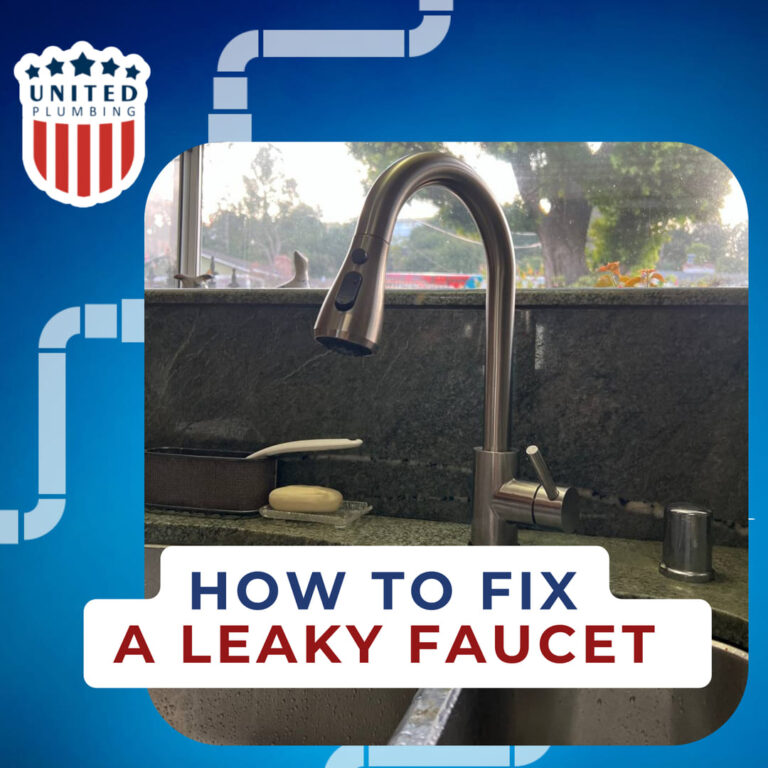
How to fix a leaky faucet
Nobody wants to listen to drip, drip, drip all night. Your leaky faucet isn't just keeping you awake—it's costing...
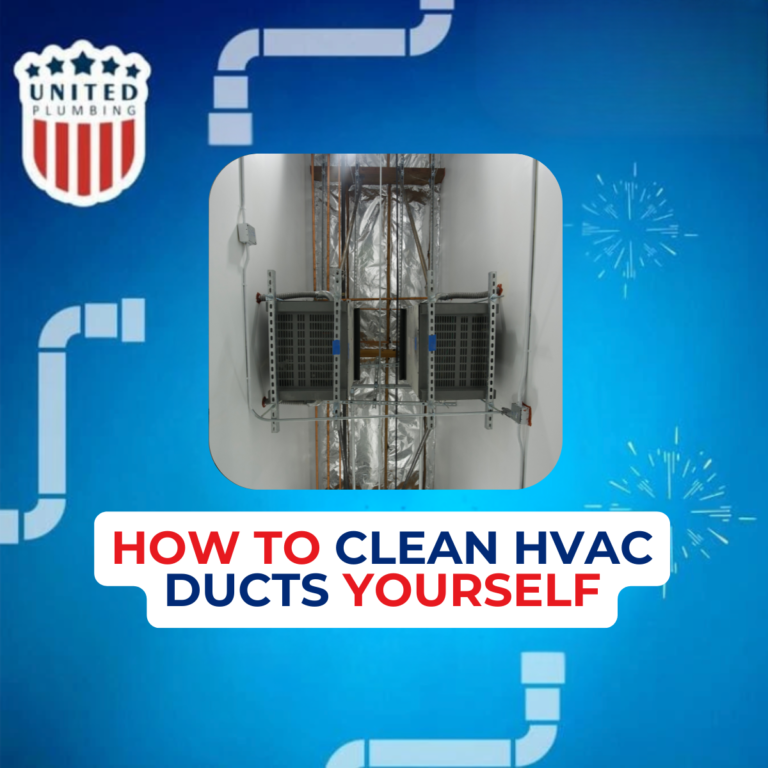
How to Clean HVAC Ducts Yourself
Why DIY Duct Cleaning Matters
Did you know dirty HVAC ducts can reduce your air conditioner’s efficiency and...


If you still have questions or need advice, please leave a request and we will contact you as soon as possible
Need a plumber and got no clue where to start?
(408) 539-6936Facing a plumbing issue? Get a FREE in-person estimate and quick solutions from our skilled technicians, ensuring your home runs smoothly again!
